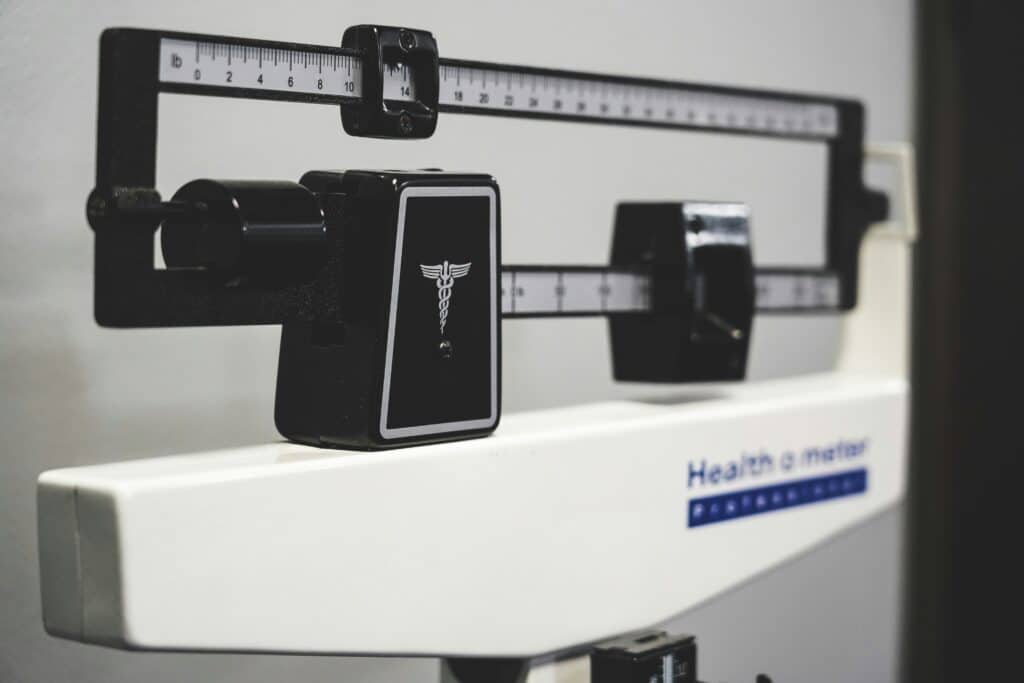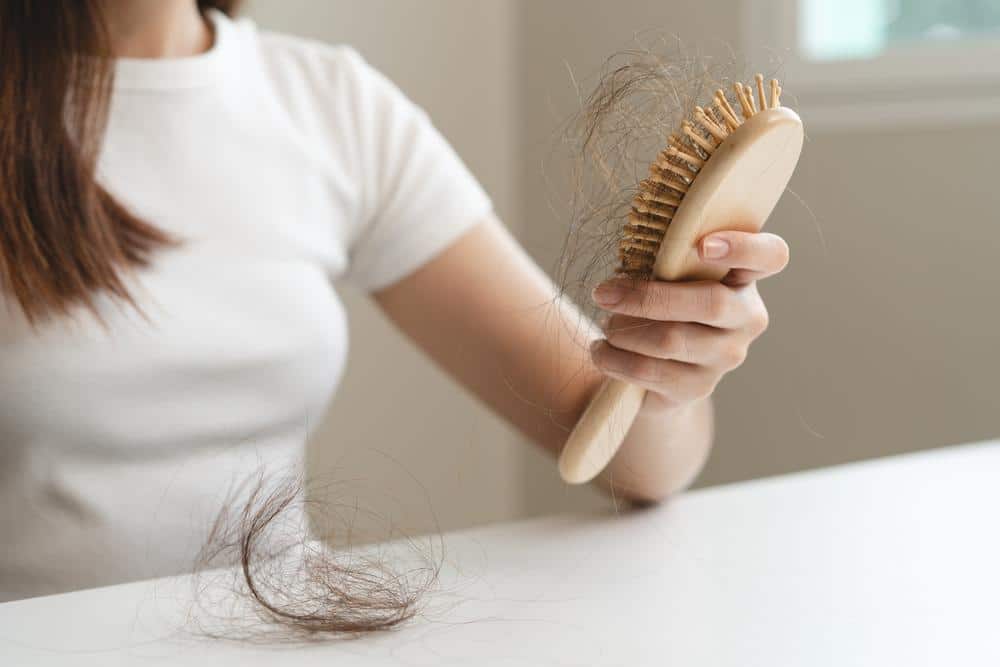If you’ve recently lost weight through lifestyle changes, bariatric surgery, or GLP-1s, and you’re now noticing hair loss, you’re not alone. While achieving weight loss goals can feel empowering and life-changing, hair loss after weight loss (e.g. Ozempic hair loss) can be a shock.
Hair thinning or shedding after significant weight loss is typically from a condition called telogen effluvium. This is a temporary form of hair loss triggered by physical stress, nutritional deficiencies, or hormonal changes. Rapid weight loss can sometimes mean your hair doesn’t get the nutrients it needs to thrive.
At Manhattan-based Aglow Dermatology, we specialize in treating hair loss. We’ll provide personalized solutions that go far beyond DIY advice. In this post, we’ll help you understand why hair loss after weight loss happens. We’ll also provide tips for protecting your hair during and after your weight-loss journey.
Got hair loss? Schedule a consultation with our hair loss dermatologist!
The Link Between Weight Loss and Hair Loss: What’s Happening to Your Body?
Hair is commonly one of the first places a body reflects internal stress. Whether you’ve lost weight from diet, exercise, surgery, or medication, your body may interpret it as physical stress. One common result is a temporary condition known as telogen effluvium.
Telogen effluvium occurs when many of your hair follicles shift from the growth phase to the shedding phase. This typically happens several weeks to a few months after a major body stressor, like significant weight loss. Telogen effluvium can result in noticeable shedding across the scalp. Most experience hair thinning after weight loss, rather than complete bald spots.
In addition to stress, weight loss can also lead to nutritional imbalances, impacting hair growth. If your body isn’t getting enough protein, iron, or vitamins, it may focus on essential functions, not hair growth. This is especially common in cases of reduced appetite or restrictive dieting.
Thankfully, this type of hair loss is usually temporary. With the right care and medical guidance, your hair can recover.
What’s the Deal with Losing Hair After Weight Loss from GLP-1 Medications?
As medications like Ozempic®, Mounjaro®, and Zepbound™ become increasingly popular, many patients are quickly achieving significant results. But, alongside the positive health outcomes, some people are noticing an unexpected change: after weight loss comes hair loss.
While this can be alarming, it’s important to understand how these medications may contribute to the problem.
GLP-1 receptor agonists work by regulating blood sugar, slowing digestion, and reducing appetite. As a result, many users experience rapid weight loss, often without feeling hungry. This dramatic shift can stress your body, which is one of the primary triggers of telogen effluvium shedding.
With decreased appetite or diet changes, it’s easier to miss out on key nutrients. Protein, iron, zinc, and certain vitamins may not be as readily consumed, which can compound the issue.
That said, these medications do not directly cause hair loss. Instead, it’s the metabolic and nutritional changes surrounding weight loss that may disrupt your hair cycle. Many people see hair regrowth after weight loss once they address nutrient levels and find balance.
Why Hair Loss May Happen While Taking GLP-1s
If you’ve noticed hair loss after weight loss while using Ozempic®, Mounjaro®, or Zepbound™, you might be blaming the medicine. The reality is more complex: these medications don’t directly cause hair loss. However, the changes they trigger in your body can create the perfect storm for temporary shedding.
The most common cause of hair loss after taking GLP-1s is the speed of weight loss. Rapid or significant weight loss can push the body into a stress response, known medically as telogen effluvium. In this state, many hair follicles shift prematurely into the shedding phase.
Another contributing factor is nutritional deficiency. GLP-1s work by reducing appetite, which is great for calorie control. However, less food can also mean less protein, iron, and essential nutrients.
Even subtle deficiencies can disrupt the hair cycle, especially if your diet lacks variety. Weight loss may also trigger emotional or physical stress, hormone changes, and pre-existing hair concerns.

Tips to Support Your Hair During and After Weight Loss
Hair loss after losing weight is disheartening, but you can take proactive steps to protect your hair and encourage regrowth. Regardless of how you’re losing weight, these tips can help you maintain healthier, fuller hair through the transition.
1. Prioritize Protein and Key Nutrients
Hair is primarily protein, so make sure your diet includes enough of it. Also focus on nutrients like iron, zinc, biotin, and B12, which support healthy hair growth. A registered dietitian can help you meet your needs while taking appetite-suppressing medications.
2. Avoid Crash Dieting or Extreme Calorie Deficits
Rapid weight loss is one of the top triggers of hair loss. Aim for steady, sustainable changes, when possible, which will reduce stress on your system and minimize hair shedding.
3. Be Gentle with Your Hair
Limit heat styling, tight hairstyles, and harsh chemical treatments during weight loss. Your hair is more vulnerable, so treat it with care.
4. Seek Professional Help Early
If shedding continues for more than 3–6 months, or is concerning, don’t wait to call an expert. At Aglow Dermatology, we offer personalized hair loss evaluations and treatments like topical solutions, supplements, and PRP therapy.
When to Seek Expert Help: You Don’t Have to Figure This Out Alone
Some shedding is normal, but you shouldn’t ignore prolonged, patchy, or emotionally distressing hair loss. If you’ve been noticing consistent thinning for more than 3-6 months, you should contact a board-certified dermatologist.
The earlier you seek support, the more options you’ll have to slow shedding, stimulate growth, and restore your confidence. Aglow Dermatology understands how deeply personal hair loss can be, especially for those with textured or curly hair. We specialize in identifying the root of your hair changes, whether it’s nutritional, hormonal, or stress-related. We’re here to help you feel like yourself again—one strand at a time.
Manage Hair Loss After Weight Loss with Aglow Dermatology
Hair loss after weight loss can be unsettling, but this is often a temporary and treatable concern. Whether your journey includes lifestyle changes, surgery, or GLP-1 medications, understanding is the first step to healing.
By focusing on nutrition, practicing gentle hair care, and seeking expert guidance, you can encourage hair regrowth. At Aglow Dermatology, we’re here to help you navigate this phase with confidence and clarity. With over 25 years of experience treating all skin and hair types, Dr. Strachan offers compassionate, expert care.
You’re working hard to care for your body, and we’re here to ensure your hair gets the same attention. When you’re ready, we’re here to help you feel and look your best.
Schedule a consultation today!
Learn about our telehealth for hair loss services!



